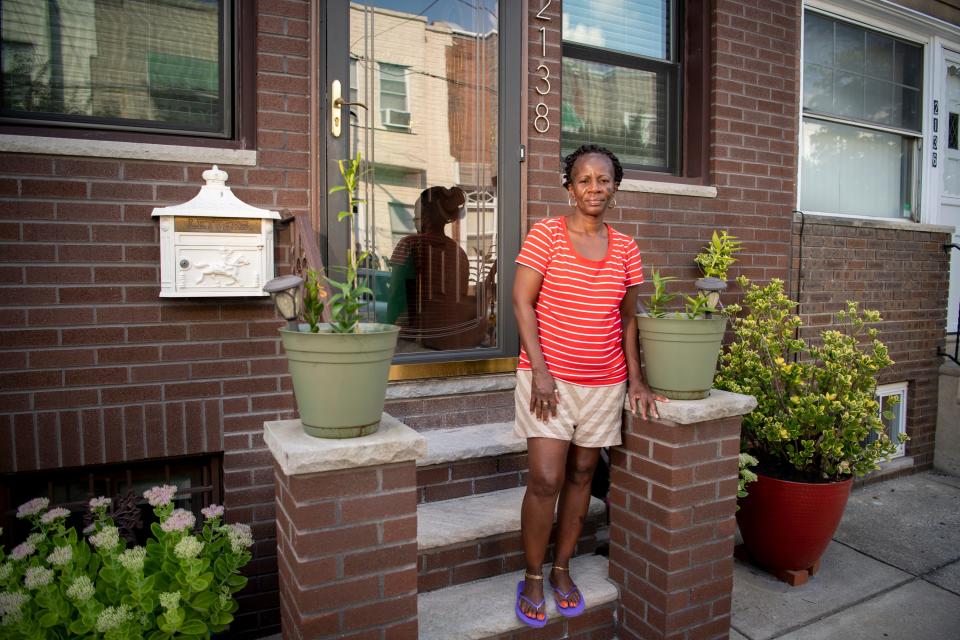Advocates push for reverse mortgage reform after investigative report
As Congress met to discuss abusive lending practices tied to reverse mortgages Wednesday, Democrats unveiled a bill to protect seniors from foreclosures.
Advocates for elderly borrowers told the Financial Services panel more should be done to ensure people with the loans can stay in their homes until they die, the program's central promise.
Rampant defaults leading to foreclosure on the special loan were the focus of a June investigative report by USA TODAY in partnership with Grand Valley State University with support from the McGraw Center for Business Journalism. The analysis found that minority neighborhoods in urban pockets of the country were disproportionately affected, with borrowers sometimes losing their homes over small debts for property taxes or loan servicing mistakes.
Experts testifying before the House’s Financial Services Committee said some unfair practices have been addressed, but government and industry should guard against unscrupulous lenders that target lower-income black neighborhoods in marketing the loans and encourage elderly homeowners to borrow money while glossing over risks.

Sarah Bolling Mancini, a staff attorney at the National Consumer Law Center, cited the report in USA TODAY and called the uptick in foreclosures on vulnerable elders, “alarming.”
“This product often is able to make a huge difference in the lives of seniors, providing personal and financial stability,” Bolling Mancini said. “Unfortunately, a significant number of reverse mortgage loans are now in foreclosure, putting elderly borrowers at risk of eviction and homelessness.”
USA TODAY’s analysis of 1.3 million loan records showed that nearly 100,000 reverse mortgages have failed from 2013 to 2017 – frequently shattering seniors' plans for graceful retirements and smooth transitions of wealth to the next generation.
More: Seniors were sold a risk-free retirement with reverse mortgages. Now they face foreclosure.
More: 10 questions to ask before getting a reverse mortgage
More: Reverse mortgages left many seniors in foreclosure. Here's what can be done to stop it
Rep. Lacy Clay, D-MO, also cited the USA TODAY investigation at Wednesday's hearing, pointing to the disproportionate impact on African American communities and seniors who find themselves, "burdened by mountains of paperwork."
Reverse mortgages allow homeowners 62 and older to borrow money against the appraised value of their home, tapping into their accrued equity. Typically they stop making monthly payments and can stay put for life, as long as they continue to live in the home, maintain it and keep up with property taxes and insurance.
A new review of federal housing data released Wednesday by the Government Accountability Office found that 8,800 reverse mortgages in foreclosure from 2014 to 2018 had unpaid property charges of less than $2,000, said Alicia Puente Cackley, the GAO's director of Financial Markets and Community Investment.
Cackley said that figure indicates loan servicers are failing to offer the "low-balance extension" bailout for seniors, created in 2016 to help stave off foreclosures.
The GAO and Bolling Mancini also called on the Department of Housing and Urban Development to do a better job of tracking foreclosure data.
The new bill unveiled in draft form Wednesday – backed by the committee's chairwoman Rep. Maxine Waters, D-CA, and Rep. Denny Heck, D-WA, would do just that: mandate HUD report to Congress each year the number, reason and percentage foreclosures caused by tax and insurance defaults.
The bill would offer those people more options, including potential repayment plans. That could help the 90,000 people who HUD's own auditors project will fall into default for tax and insurance debts.
Peter Bell, president and CEO of the National Reverse Mortgage Lenders Association, said lenders already take steps to avoid foreclosure, but welcome reforms that would drive numbers down further.
"Lenders are in the business of making loans, not owning real estate," Bell said. "No lender wants to foreclose if it can be avoided."
Wednesday’s hearing also addressed reverse mortgage problems unique to some widows or widowers who are not on the loan papers. Known as “non-borrowing spouses," some were too young to qualify at the time the loan was issued, then are left scrambling to meet deadlines to prove their right to stay in the home after their spouse dies.
Earlier this week, HUD announced a crucial change that extends the non-borrowing spouse deadlines and other requirements from four months to complete all requirements to six months to start to the process.
Tracey Barnes, of Philadelphia, was blindsided by a foreclosure notice from Celink just two weeks after she buried her husband in 2014.
“I was devastated... people are calling me telling me that I had to move," Barnes told USA TODAY last year. "That was the last thing I wanted to hear."
Effective this week, servicers must instead notify spouses of their options after the death of a borrower and give them six months to apply to remain in the home by proving they are the next-of-kin under state law.
HUD spokesman Brian Sullivan said that fix resulted from a review by Federal Housing Authority Commissioner Brian Montgomery.
“It’s always been the idea that qualified non-borrowing spouses ought to remain in their homes,” Sullivan said.
Bolling Mancini and other advocates cheered the decision by HUD, noting that it came after pressure from the investigative report.
“The piece USA TODAY did was important to focus on these issues and it helped put pressure on HUD,” Bolling Mancini said. "For many people this will absolutely change their lives—allowing them to stay in their longtime home rather than being foreclosed or evicted.”
Nick Penzenstadler is a reporter on the USA TODAY investigations team, focusing primarily on firearms and consumer financial protection. Contact him at npenz@usatoday.com or @npenzenstadler, or on Signal at (720) 507-5273.
Jeff Kelly Lowenstein is an assistant professor of multimedia journalism at Grand Valley State University. He formerly was a lecturer at Columbia College Chicago and was a database and investigative editor at Hoy Chicago.
This article originally appeared on USA TODAY: Advocates push for reverse mortgage reform

